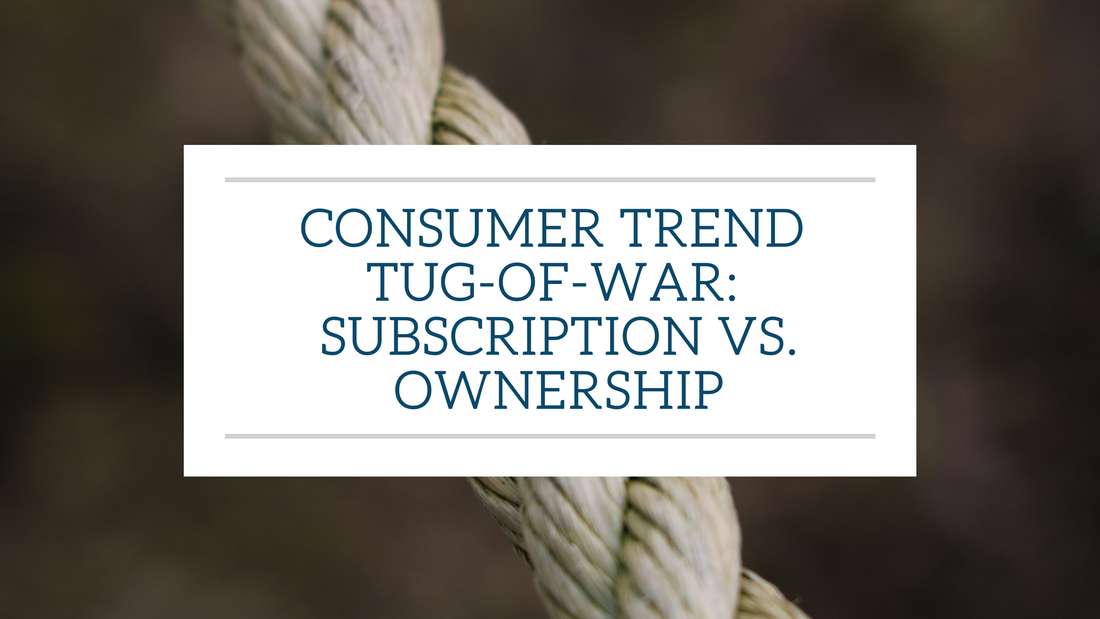|
What’s a beeple? That’s how I began a conversation with my dad, who’d called to discuss the big art news of the week. I now know Beeple is a who, not a what, and that the digital artist’s work recently broke records, with his piece, Everydays: The First 5,000 Days, selling for $69.3 million at Christie’s. There are so many conversations to be had around this news story. We could talk about the contemporary art world, about the digital age, about capitalism. What I find interesting from a consumer trends perspective is that this sale seems to signify a shift back towards ownership culture. In the past 10 to 15 years, we’ve moved more and more of our operations—both personal and professional—onto the cloud. Subscription services have taken off. No one has CDs anymore, everyone’s on Spotify. DVD players have all but disappeared from home theaters, but everyone has multiple streaming services on their Roku or smart TV.
Even when it comes to tangible goods, there’s been a pendulum swing away from ownership. Rent the Runway allows you to borrow clothes with a monthly subscription. When you sign up for furniture rental company Feather, you can swap out your home decor when you move (or even when you tire of your mid-century modern couch). Marketing consultants have been talking about this shift away from ownership toward experiences for years. The thinking being that millennials and younger generations don’t care about owning a home or the furniture within it, they’d rather be able to pick up on a whim and travel the world on a remote year--for the experience. But does this frenzy over Beeple’s work mean something else is at play here? Christie’s offered the buyer of the Beeple piece an NFT (non-fungible token). No, it’s not a canvas or sculpture you display in your home. Instead, it’s a file that lives on a blockchain. The purchaser can access the file, like their own private digital art gallery. But it’s not something they can display in their home to be admired by cocktail party guests. NFTs are suddenly everywhere, but what they really mean for the future of art and ownership is confusing. You see, many are selling NFTs that give you “ownership” of something that’s already quite public. Case in point: The guy with the viral Fleetwood Mac/Ocean Spray TikTok video is selling the original 23-second video clip as an NFT...and he’s starting bidding on the video at $500,000. Jack Dorsey is selling an NFT of his first tweet, and bidding is currently at $2.5 million. But this stuff is already everywhere! You can see Jack’s first tweet or that TikTok video anywhere on the internet for free. So why are people shelling out millions of dollars for these NFTs? Are we really over the idea of ownership, culturally, or is it that our concept of what constitutes ownership has shifted? I’m not sure what it all means. This is not a blog where I give any answers. It is, after all, a big question. And I think we’ll see the answer play out over the next couple of decades as our physical bodies become more entangled with our digital lives. But it is worth noting that the desire to own things might be something primal. We are animals, and animals are territorial. Warring factions have fought over hunks of land for pretty much all of human history. People want to claim something as their own, even when it’s something as ephemeral and nebulous as a corner of the internet. What does all of this mean for brands? I think it should give those moving toward the subscription model pause. There is absolutely a place for subscription businesses, and I don’t think Netflix, Spotify, or Dollar Shave Club is going anywhere. But I think some brands have felt pressure to create a subscription business just for the sake of having one. Maybe they've been scared into considering it after reading countless think pieces about how subscriptions are essential in the digital era. Those brands feeling the peer pressure are the ones that should perhaps reconsider. After all, doing things just to be part of the in-crowd wasn’t a good idea in high school; it probably isn’t a good idea in business, either. It’s still early days for the NFT trend, and it will be interesting to see if this is a flash in the pan or if I’ll be hocking an NFT of this blog post in five years. If it’s the latter, I can only hope for a Beeple-like windfall. Comments are closed.
|
